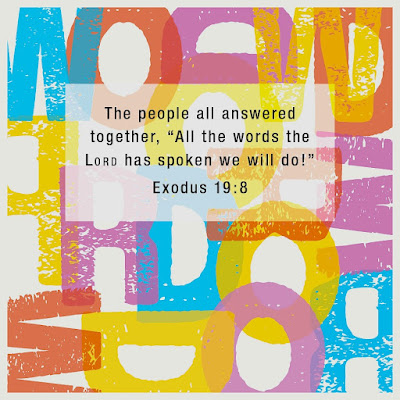Here's a talk I gave on the first Sunday of Christmas 2021. I promised myself no edits or additions except for obvious errors, but I've added new illustrations. Because I used notes and not a script, this is approximately what I said. What would i say about Christmas music and food today, three years later? What would you say?
Intro
The pastor asked three of us to share our testimony of Christmas for the proclamation on the Sunday after Christmas: where do we find Jesus, the Christ child?
During this time of the year the northern hemisphere experiences more night than it does day, we first observe the advent season of waiting for, hoping for, and expecting the birth of Jesus, light of the world. We don't know the actual month or day of Jesus' birth, but the early church wisely calendared it at the winter solstice that also coincided with the Mithric Feast of the Unvanquished Sun. Jesus, Son of Righteousness spelled with an "o" also is the Sun of Righteousness spelled with a "u" who is Light of our Lives. After Advent and Nativity, the day and then the season of Epiphany continue with Jesus as light to all.
Martin Luther particularly loved the New Testament book of Titus. The anonymous author tells us, "The grace of God has appeared, bringing salvation to all." [Titus 2:11a] Jesus is that light-filled grace, our grace-filled light.
Nativity Prayer
Root of Jesse, Son of Heaven, Mary's Child.
Cradle of Joy, Word in the Manger, Astonishing Gift.
Lord of Creation, Abundant Promise, Dayspring of Peace.
Be with us here in this place;
make us shepherds of your grace.
May our lives season the world with salt;
Nurture our neighbors with leaven;
Light a path to show your way.
In your name we pray—
Amen!
Valley Winter Song – excerpt
You know the summer's coming soon
Though the interstate chokes under salt and dirty sand
And it seems the sun is hiding from the moon
And late December can drag a person down
[While] the snow is falling down
In our New England town
What else is new?
What could I do?
I wrote a Valley Winter Song
To play for you.
by Chris Collingwood and Adam Schlesinger
Christmas in this Valley 1
So sang Fountains of Wayne in a song LL Bean gave lots of airplay to in a commercial during 2008. In these days of endless pandemic in a different valley on the other coast, besides Jesus light of the world and the created lights of sun, moon, and stars, what brightens our days better than music?
Music in church and on the street is a huge part of December's identity and festivities. Even people with no experience of clinical depression typically have a lower mood during the winter months. Have you ever heard a song or a symphony that instantly gave you hope? Today I'll mention two major pieces of music and a recurring event that always bring the grace and hope of Jesus into my world.
Along with a few million others across the centuries, Handel's oratorio The Messiah is a December perennial for me. Especially the opening solo for tenor from Isaiah 40 with its announcement, "Comfort Ye, My People – Every Valley Shall be Exalted." Our God. God's people. My second concert-type composition that takes a trained university or professional choir is the Christmas Cantata by Daniel Pinkham, a Boston area composer and church musician who lived during the mid-twentieth century.
My recurring event is [Scripture] Lessons and Carols that can take many forms. We had a participatory Lessons and Carols here on Christmas Eve; this morning on the first Sunday of Christmas it's Lessons, Testimony, and Carols. When I lived on the east coast, as an undergrad at Boston University I sprung for the free tickets people needed to enjoy Lessons and Carols at Harvard's Memorial Church. I believe they presented it three times each year back then, but it was so popular you still needed a ticket.
Later on when I was a seminarian across the river from Boston University, at Lessons and Carols I often ran into classmates or friends I hadn't seen in a long time due to our schedules and because days and months pass so fast. That became a time we'd resolve to get together first of the new year, which always happened.
Christmas in this Valley 2
Besides music, as we celebrate the nativity with God born in Bethlehem as a baby formed out of created stuff from the earth, what is Christmas without all that special yummy food? What you enjoy depends somewhat on your current place on the planet along with traditional winter holiday foods of your home country or home region, or maybe what your grandparents and great grands considered necessary for Christmas feasts with friends and families.
Food also has got to be the best ever Christmas present because in itself it's a gift of creation. From my perspective, giftable foods ideally are things like home baked cookies or quick breads or homemade jam, preserves, or pickles. Maybe home brew, if there's a brewer in your household. These days supermarkets, specialty shops, and farmer's markets offer a whole lot of tasty food. They're a live option if you won't or don't bake or can or brew.
Outro
What else can we do but sing and play valley winter songs to brighten lives and remind us of Jesus in our midst? We can create and enjoy culinary gifts of creation. Grace has come to the entire world in Jesus; many of us know grace and glory and joy through music and because of edible gifts from the earth.
• What's your favorite Christmas music?
• What Christmas food is an absolute necessity?




























